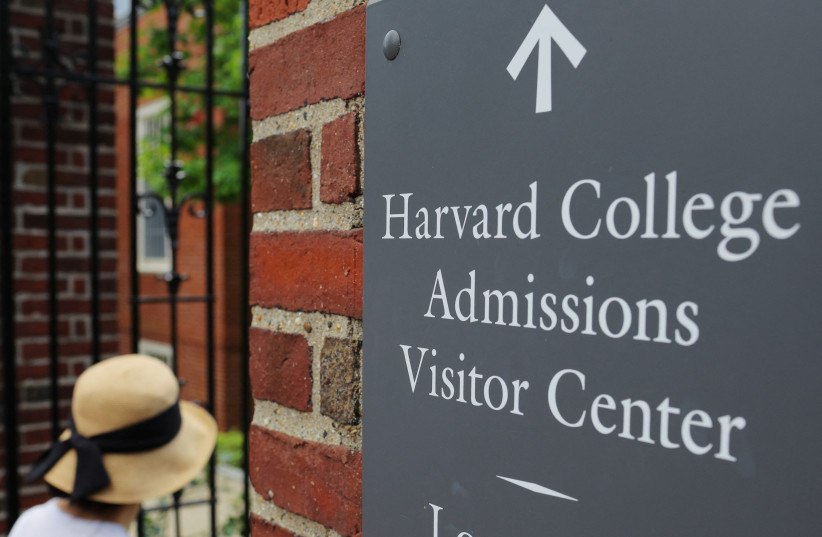On Thursday, the Anti-Defamation League (ADL) dropped a bombshell with its first-ever Campus Antisemitism Report Card, unleashing a storm of controversy and concern across academia with its ranking of various campuses in relation to their handling of antisemitism.
Its report revealed that the Massachusetts Institute of Technology (MIT), Harvard University, Tufts University, and the University of North Carolina – Chapel Hill, among others, were the recipients of a failing F grade in terms of combating racism.
This damning assessment has sent ripples throughout the higher education landscape, exposing a glaring gap in the presumed efforts to combat antisemitism at these esteemed campuses, and plunging institutions like Harvard into the depths of academic infamy with their lackluster responses.
The Report Card reviewed 85 schools and assigned grades from A through F to give campus leadership, parents, students, alumni, and stakeholders a mechanism to evaluate the state of antisemitism on each campus and to comprehend how schools across the country were responding to racist incidents.
According to released data, two schools received an A, 17 received a B, 29 received a C, 24 received a D, and 13 educational institutions were given a failing F grade.

Some universities have been especially lauded for their proactive measures. For example, Brandeis University, (given an A), was applauded for its bold action in revoking recognition of its Students for Justice in Palestine (SJP) chapter, citing problematic behavior in the aftermath of the October 7 massacre. Additionally, it underscored its stance against expressions of antisemitism, like the chanting of the slogan, “From the River to the Sea,” while affirming a zero-tolerance policy on antisemitic behavior and speech on its grounds.
Elon University (A) opted for a different approach, fostering opportunities for dialogue and understanding post-October 7. Events like “Contextualizing the Conflict: Conversations about the Middle East” were introduced, drawing significant participation from students, faculty, and staff, aiming to cultivate a deeper understanding of the complexities involved.
Meanwhile, institutions like the University of Miami (B), the University of Maryland (B), the University of Texas, Austin (B), and Washington University in St. Louis (B) responded with varying strategies, from expressing solidarity with Israel and condemning antisemitic incidents to implementing measures to ensure the safety of Jewish students and mandating education on antisemitism for the campus community.
Each response reflects the unique priorities and approaches of these academic institutions in addressing complex societal issues within their campus environments.
Despite the proactive measures taken by some institutions, others have faced challenges in confronting this issue head-on. For instance, the University of Hartford, Indiana University, and the University of Colorado at Boulder received a C, indicating room for improvement in their responses.
Similarly, Columbia University, the University of Pennsylvania, Ohio State University, the University of California at Berkeley, and Rice University all received a D, signaling a need for immediate, robust strategies to combat antisemitism on their campuses.
Notably, as discussions around inclusivity and tolerance continue to evolve, it remains imperative for universities to prioritize the safety and well-being of all their students, regardless of religious or cultural background.
Ratings matter
“Every campus should get an A – that’s not grade inflation, that’s the minimum that every group on every campus expects. Like all students, Jewish students deserve to feel safe and supported on campus. They deserve a learning environment free from antisemitism and hate. But that hasn’t been the experience with antisemitism running rampant on campus since even before October 7,” said Jonathan Greenblatt, ADL CEO.
“At a time when antisemitic incidents on campus are at historic levels, administrators need to adopt new policies to address this scourge and have the willingness to enforce existing codes of conduct to ensure all students are safe,” he stressed.
ADL consulted with a panel of experts that included rabbi Kevin Fried, managing director of the Jewish Graduate Student Initiative; Sally Mason, former president of the University of Iowa; and Dr. William “Brit” Kirwan, chancellor emeritus of the University System of Maryland, among others. They talked to campus administrators and also looked at what the US National Strategy to Counter Antisemitism recommended in order to draw up a list of 21 criteria for assessment, categorized into the following criteria: administrative action and policies, incidents on campus, and Jewish student life on campus.
According to the ADL, current students or alumni from the evaluated colleges or universities are invited to provide feedback on Jewish student life and experiences with antisemitism on campus via a form. Submitted responses may be considered for publication on the Campus Antisemitism Report Card website, with the option to remain anonymous. Feedback will not impact existing grades, they emphasized.
The ADL Report Card website has a comparison tool to allow users to select up to three colleges for side-by-side comparison, enabling them to simultaneously view the grades and the fulfillment of criteria for all three.
The Report Card is part of ADL’s recently launched Not On My Campus campaign, calling on US colleges and universities to commit to a no-tolerance stance regarding antisemitism.
This campaign comes in direct response to the significant rise of antisemitic incidents since October 7, with less than half (46%) of Jewish students surveyed feeling physically safe on their campuses during the fall semester of the 2023-2024 school year.
